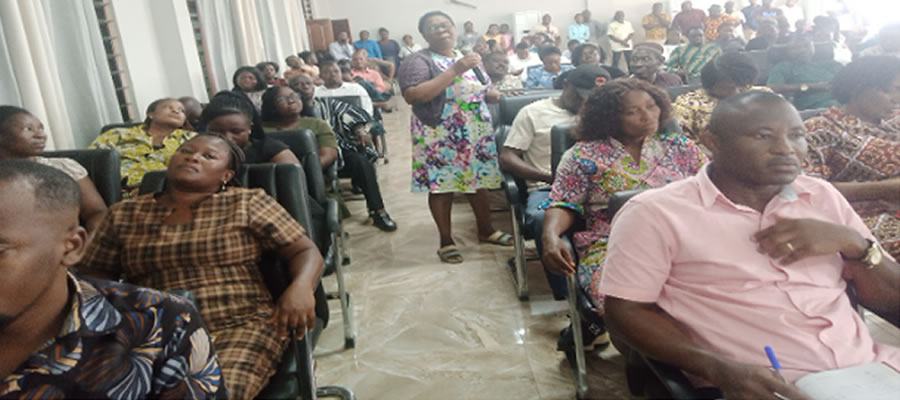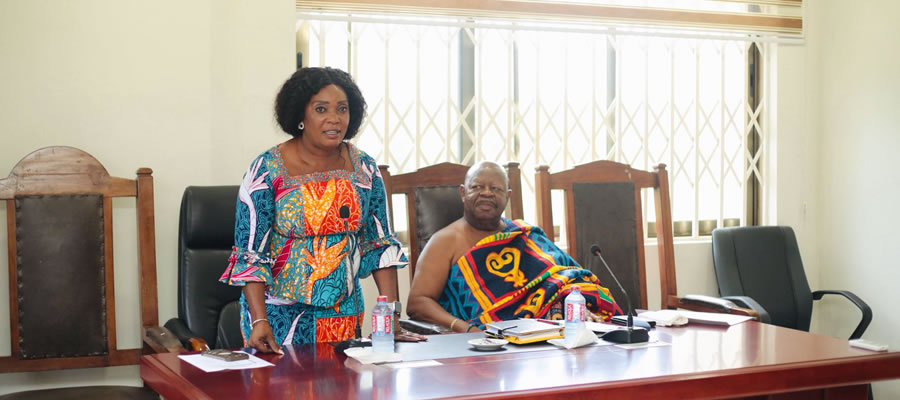

GENERAL
FDA engages bar operators on tobacco control measures in Koforidua

Date Created : 12/16/2024 12:00:00 AM : Story Author : Kamal Ahmed/Ghanadistricts.com
The meeting brought together hotel management, bar owners, restaurant operators, food vendors, and other entertainment service providers to discuss strategies to combat tobacco use.
The TOPAFA project takes a unique approach to assisting qualifying governments in sub-Saharan African nations that have signed the World Health Organisation (WHO) Framework Convention on Tobacco Control.
About 34 tobacco vendors and students attended the one-day programme to learn more about the dangers and consequences of smoking tobacco.
Ms. Anita Owusu Kuffour, the Eastern Regional Director of FDA, warned about the dangers of tobacco use, stressing that "It is so dangerous that there is nothing safe about it, and it can ruin everything from the crown of your head to the soles of your feet."
Unfortunately, she observed that many people were unaware of the significant harm caused by tobacco products.
She urged for better control of their use to minimize these negative effects.
As the Christmas season approached, she emphasized the importance of engaging bar operators to raise awareness about the relevant norms and regulations, as well as the harmful effects of tobacco.
She explained that one of the FDA's mandates was to prohibit smoking in public places, and everyone must adhere to these regulations.
She referenced the Public Health Act of 2012, Act 851, Section 58, which states that a person is not allowed to smoke tobacco or any tobacco product or hold a lighted tobacco product in enclosed indoor areas of workplaces or public areas, except in designated smoking areas.
She emphasized that these public areas include transportation terminals, markets, social gatherings, and other entertainment venues where large crowds congregate.
"The authority has been conducting a monitoring operation, and it frowns on tobacco products that do not bear warning signs; if you are caught selling such products, your items will be confiscated, and you will face the full force of the law" she said.
Ms. Kuffour urged all stakeholders to adhere to the guidelines for selling tobacco at their facilities, stating that if they did not have a designated smoking area, they could not operate, and that allowing customers to smoke in public places posed a hazard to non- smokers.
She warned that failure to display a "No Smoking" notice in your establishment, to deter smokers and protect the health of non-smokers, could result in closure by the FDA and serious legal consequences.
Ms. Margaret Gbadago, a participant, stated that she had limited knowledge about the risks associated with tobacco use.
She noted that the information provided today would help reduce health risks, especially for those exposed to second hand smoke.
Another participant, Mr. Yaw Amponsah Isaac, added that the education would help both dealers and smokers in minimizing the health risks related to smoking.
He further noted that while their businesses might be affected, their health was paramount, and it made no sense to prioritize profit over well-being, “so it's crucial to follow FDA guidelines to ensure the safety of non-smokers.”
Statistics from the Tobacco Atlas indicate that over 6,700 Ghanaians die each year due to tobacco-related diseases, with 66 per cent of these deaths occurring in individuals under the age of 70.










 facebook
facebook
 X
X
 Youtube
Youtube
 instagram
instagram
 +233 593 831 280
+233 593 831 280 0800 430 430
0800 430 430 GPS: GE-231-4383
GPS: GE-231-4383 info@ghanadistricts.com
info@ghanadistricts.com Box GP1044, Accra, Ghana
Box GP1044, Accra, Ghana